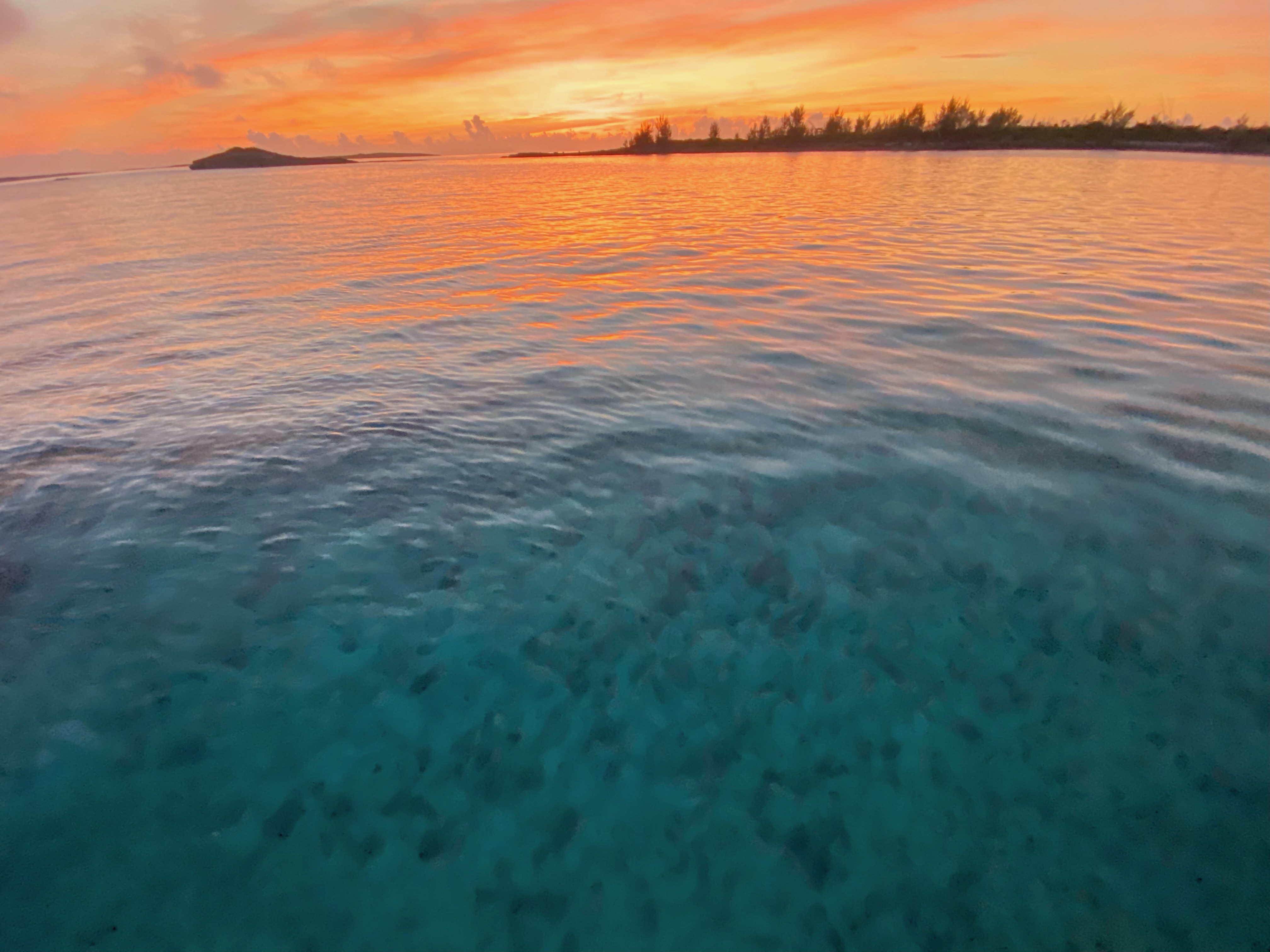We would have stayed in The Abacos a little longer before heading south, but there was a pretty significant stalled low-pressure system heading our way that would have caused heavy wind gusts up to 42 knots, and required us to find a sheltered anchorage in The Abaco Cays for about ten days. With this unfavorable weather, the Atlantic Ocean was expected to produce 5-14 foot seas and strong headwinds for days after the low-pressure system passed, which would have delayed our intended passage south even longer.
Since we did not want to stay through that unpleasant weather system if we didn’t have to, we were actively looking for a weather window for a passage south as quickly as possible before the unwelcome weather was upon us. We were fortunate to find the right day to leave, but it meant leaving immediately, the following day.
We sailed to Sandy Cay from Marsh Harbour the morning of December 3rd, and used that location as a staging ground to make our way south. We were able to enjoy an afternoon of snorkeling at Sandy Cay, and spent the rest of the day preparing the boat for the passage, planning the route, and finding a protected anchorage to lay the hook upon our arrival at our Eleuthera destination.
We left right after sunrise on December 4th, and made our way through the North Bar Cut from The Abacos, into the Atlantic Ocean. The North Bar Cut is known as the safest, widest, deepest, and most used inlet to the Atlantic from The Abacos. This is the cut the mail carrier boats use, and the one most recommended by the Waterway Guide. The Abaco Sea was calm, almost glass-like when we awoke, and inside the cut we saw no more than two-foot swells. We were going head into the wind and waves, but the winds were so light, only six knots, that the transit through the cut was fairly uneventful. We’ve been through the Tilloo Cut further south, and I can now confirm that this North Bar Cut is wider, safer, and preferred!
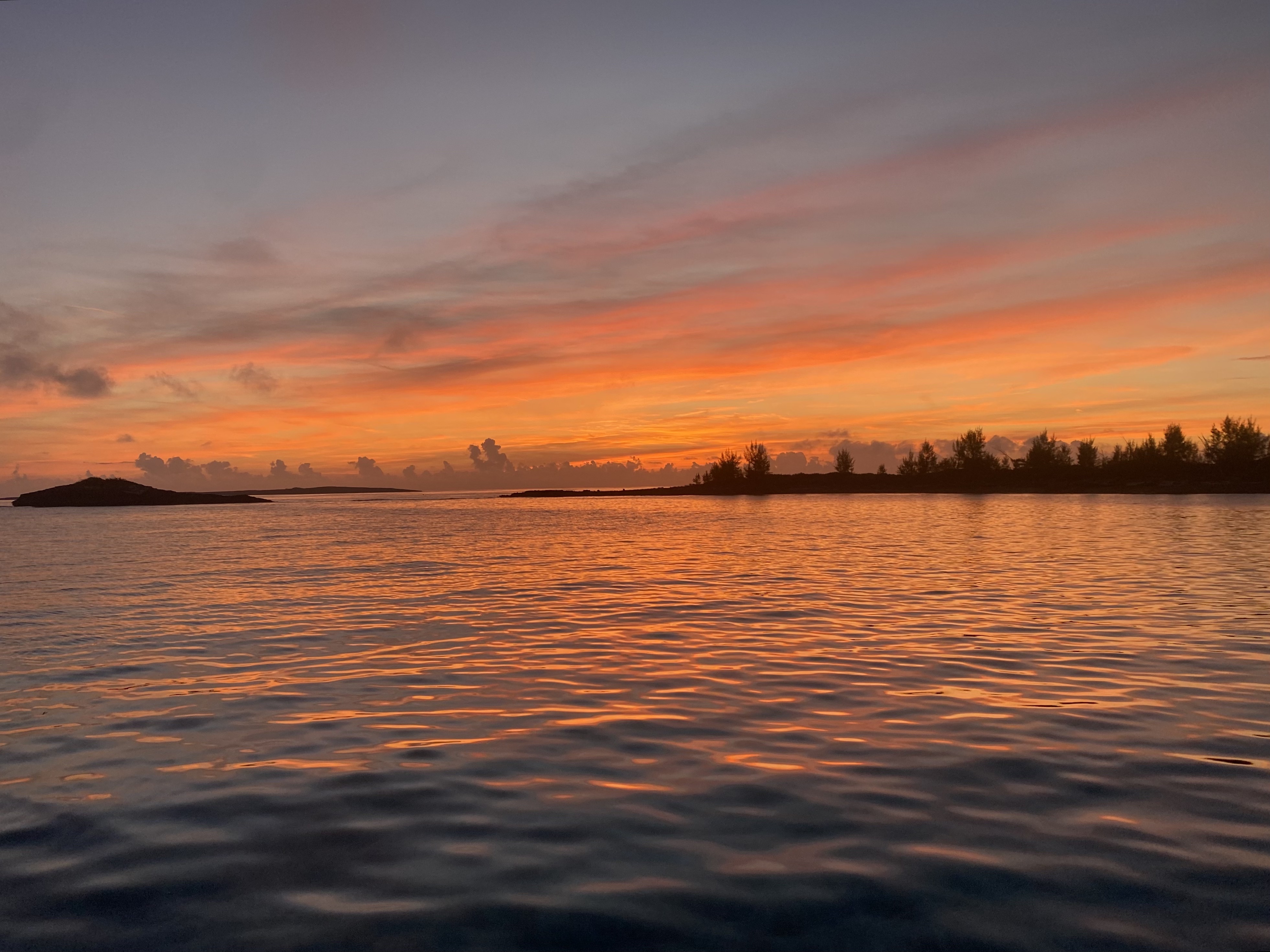
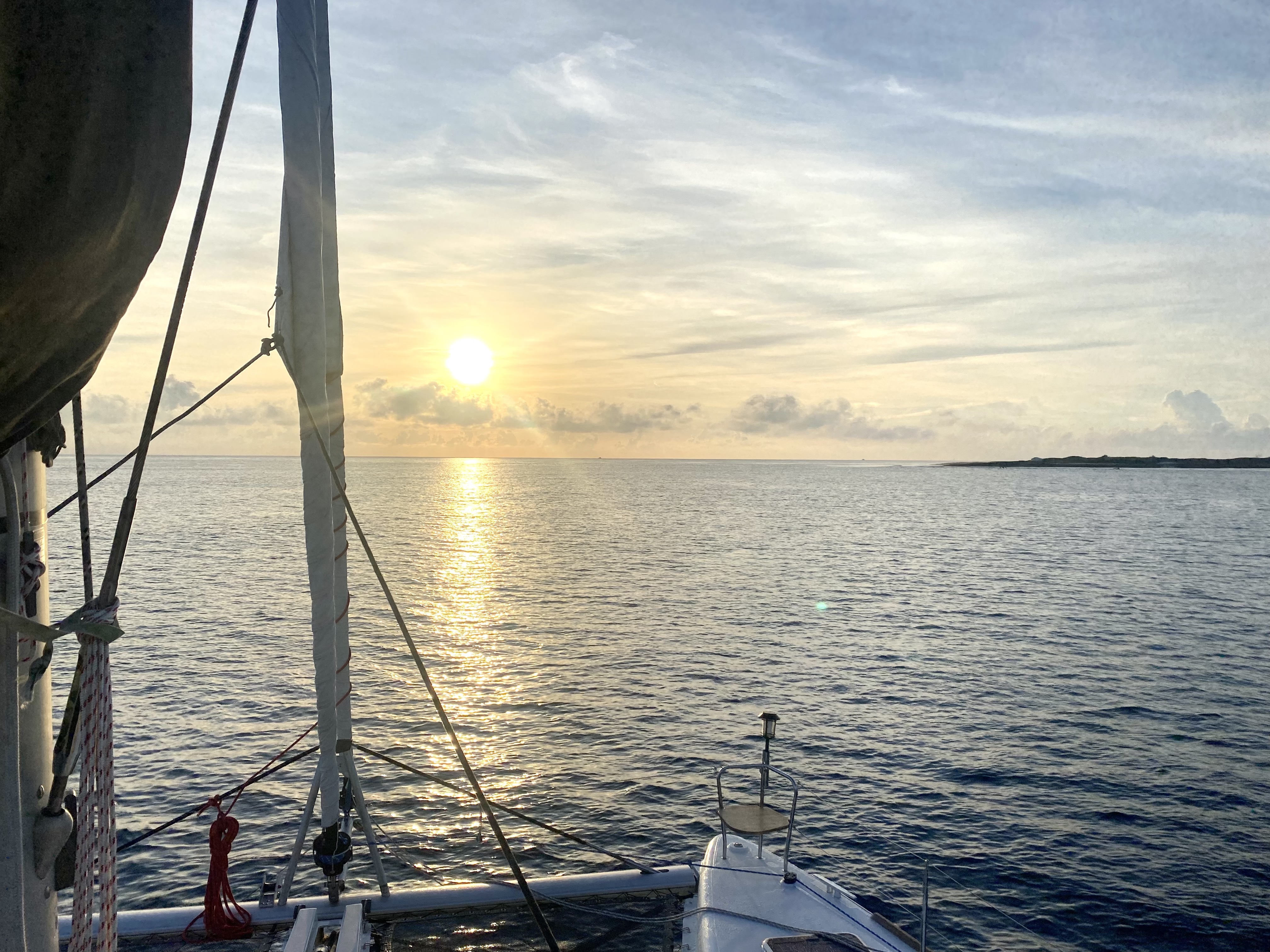
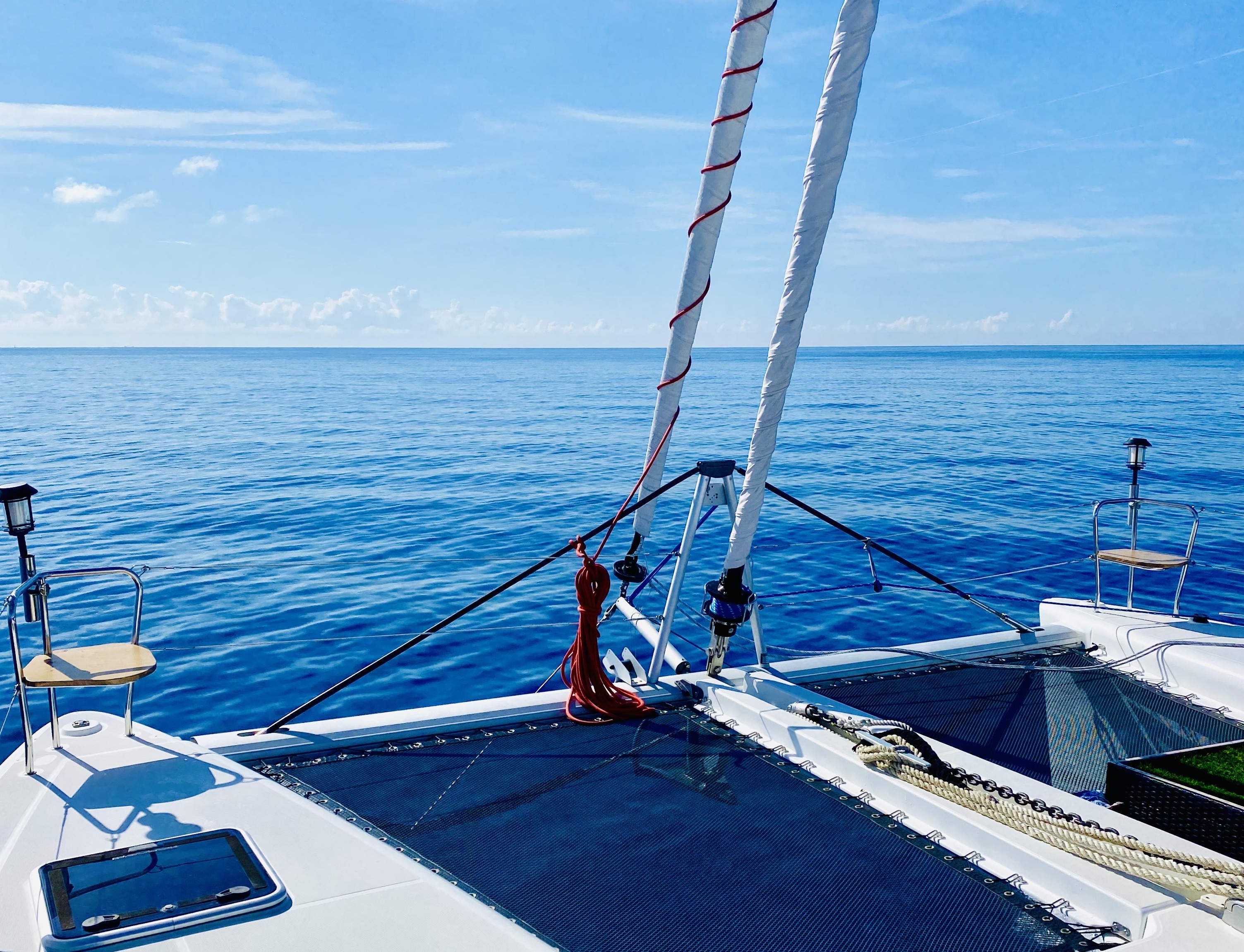
Our passage in the Atlantic from The Abacos to Eleuthera was 61 nautical miles, and took us 10 hours and 23 minutes. Even though we were heading directly into the waves for much of the day, the wind was so light, at an 8-knot maximum, that it was a very comfortable ride. The two to three-foot swells were about seven seconds apart, so we were just gliding over a glassy ocean. At one point, it was so dead calm we could see our reflections in the deep blue ocean. It was sunny all day and the waters were a bright royal blue. It was absolutely beautiful. It was hard to believe that these same seas would be turbulent for most of the following two weeks.
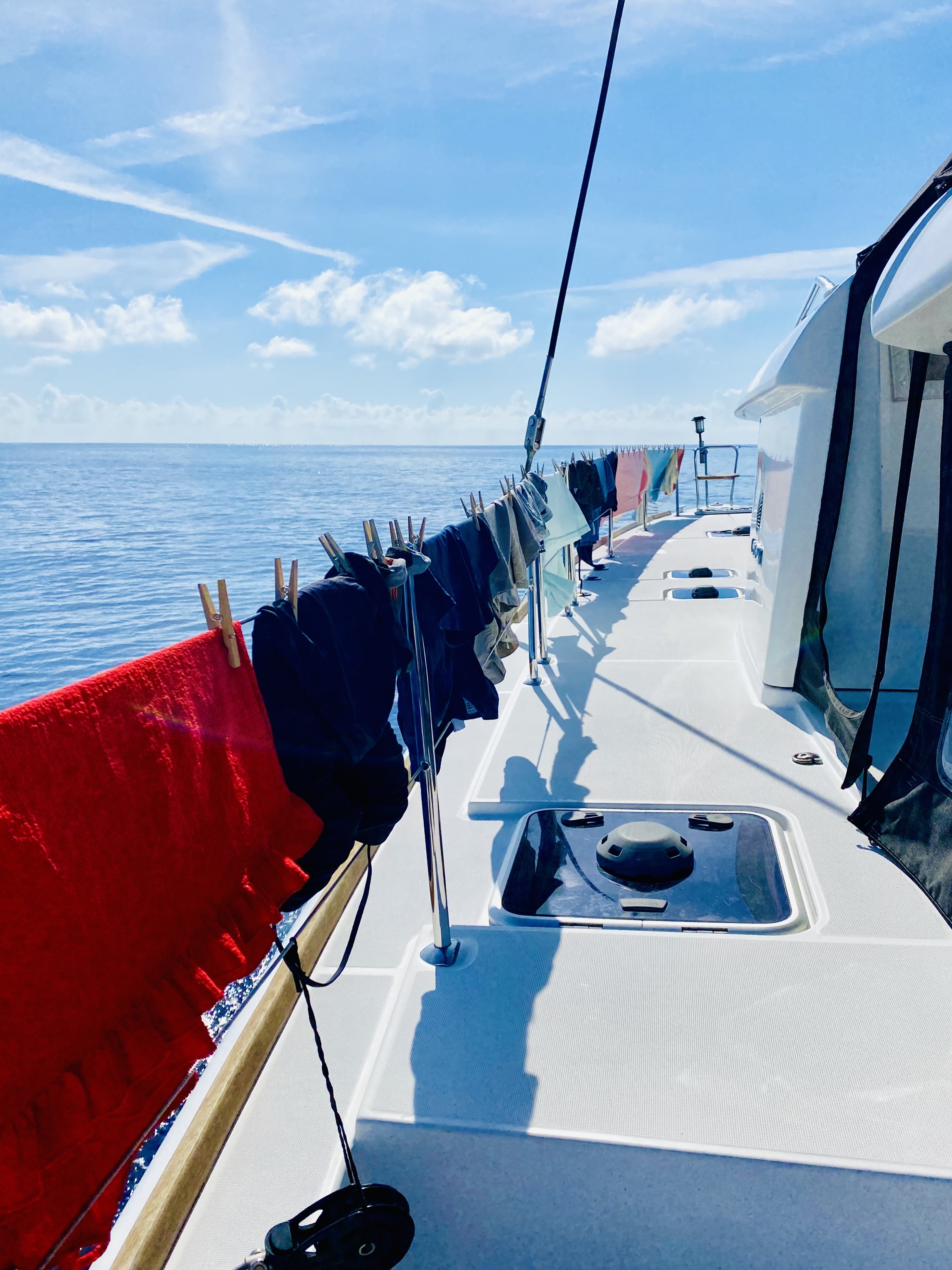
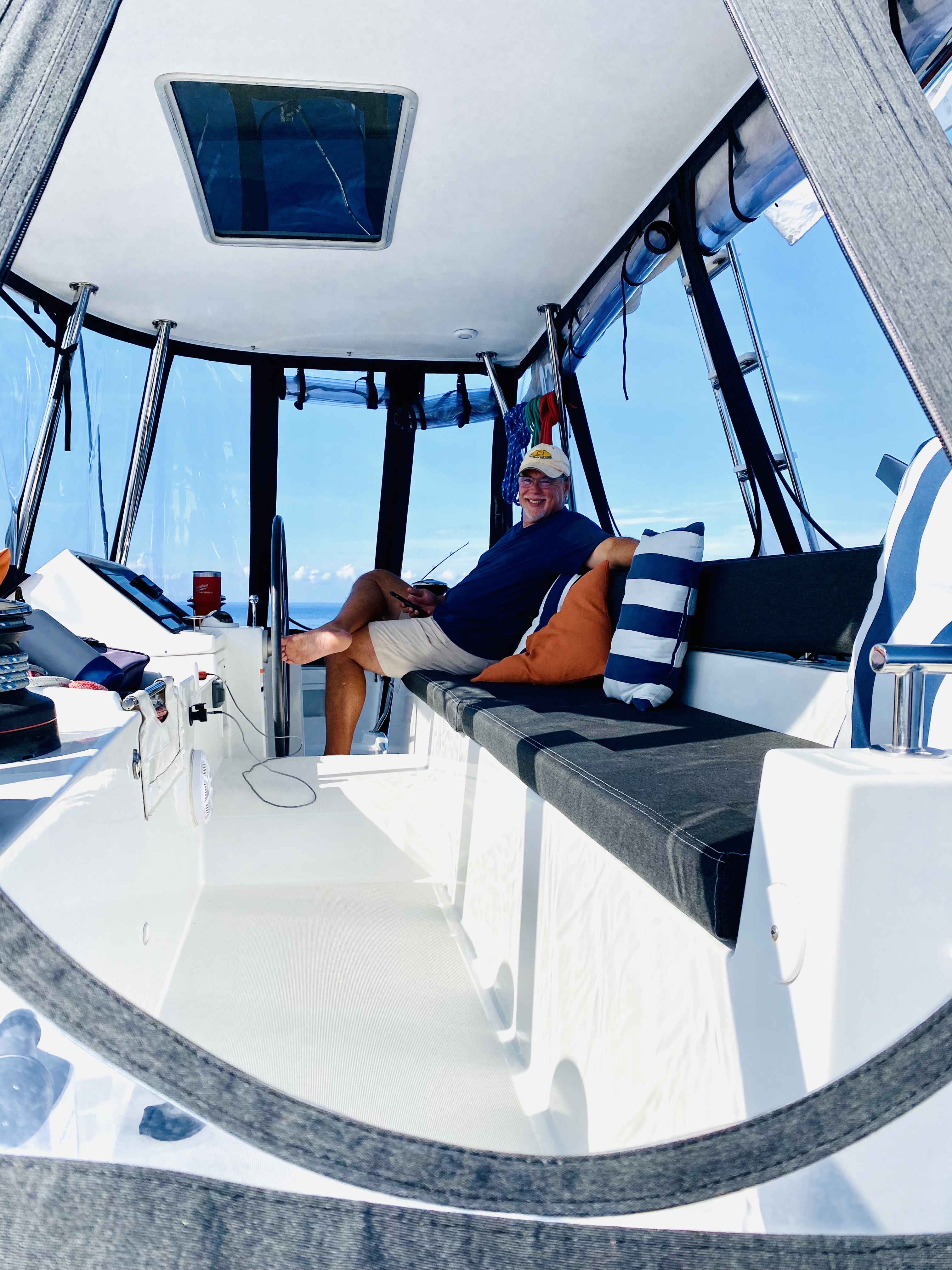
Our buddy boat, Unfettered, caught two mahi, almost at the same time, and we hadn’t caught anything all season. Kory and I prayed that the Lord would provide us a fish, and he answered very quickly. Within the hour, we had a 2-1/2 foot, 13-pound mahi on the line. Kory reeled it in while I took pictures. He gutted and cleaned the fish while I hosed off the decking (it’s a messy job). Then I skinned and filleted it. What a great catch! We immediately thanked the Lord for answering our prayers and providing our daily bread (or fish as it were). We were grateful!
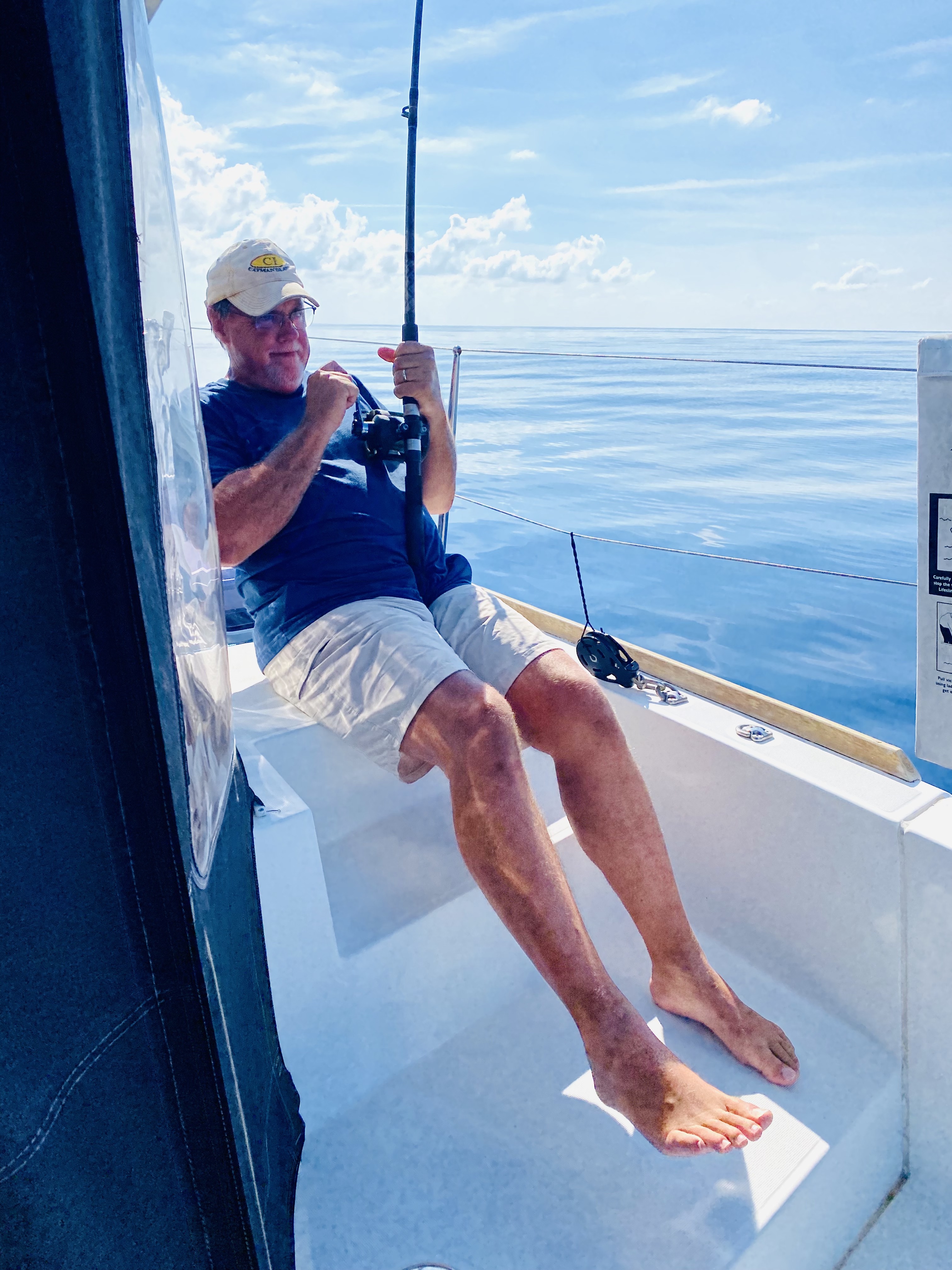
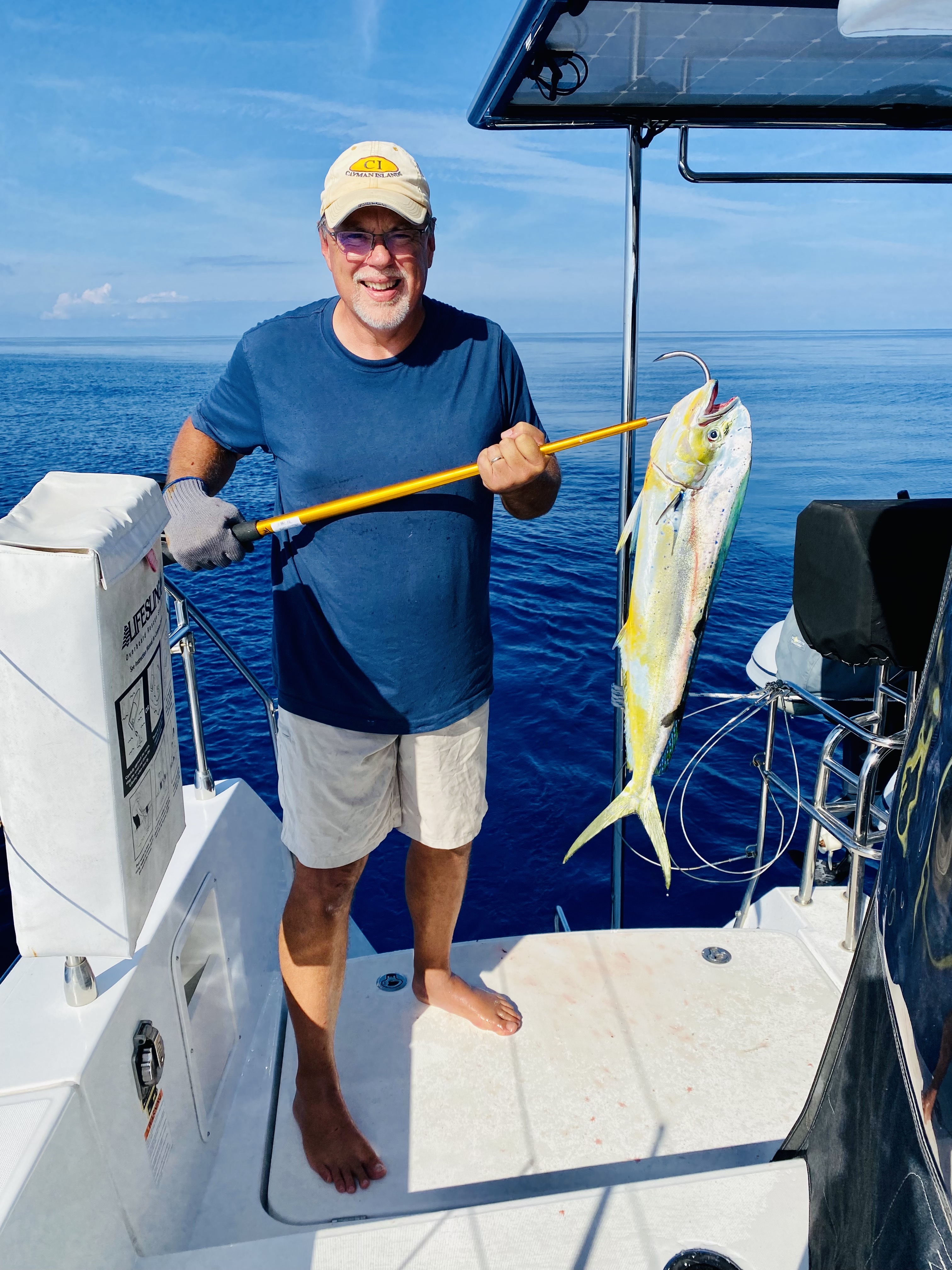
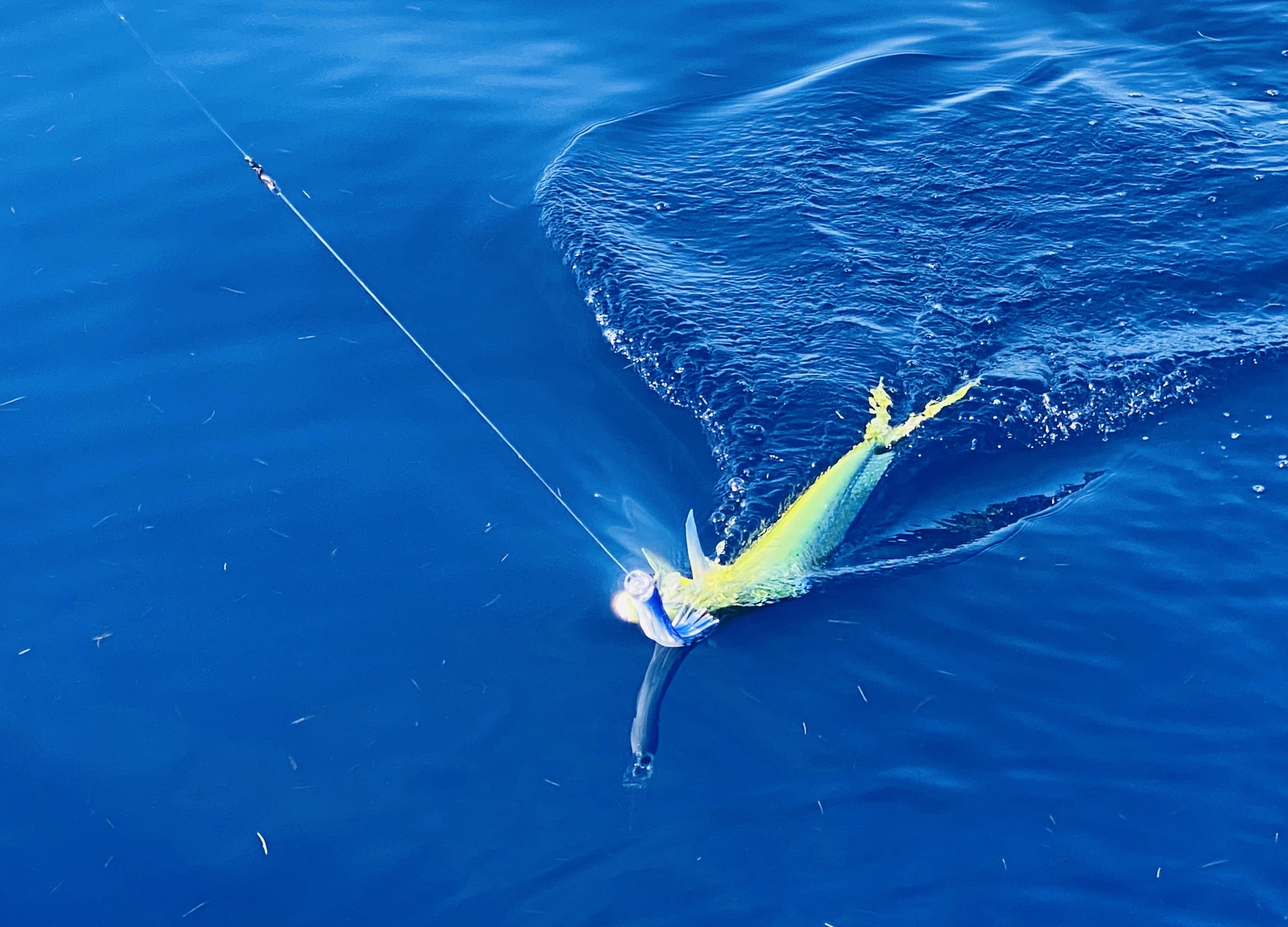
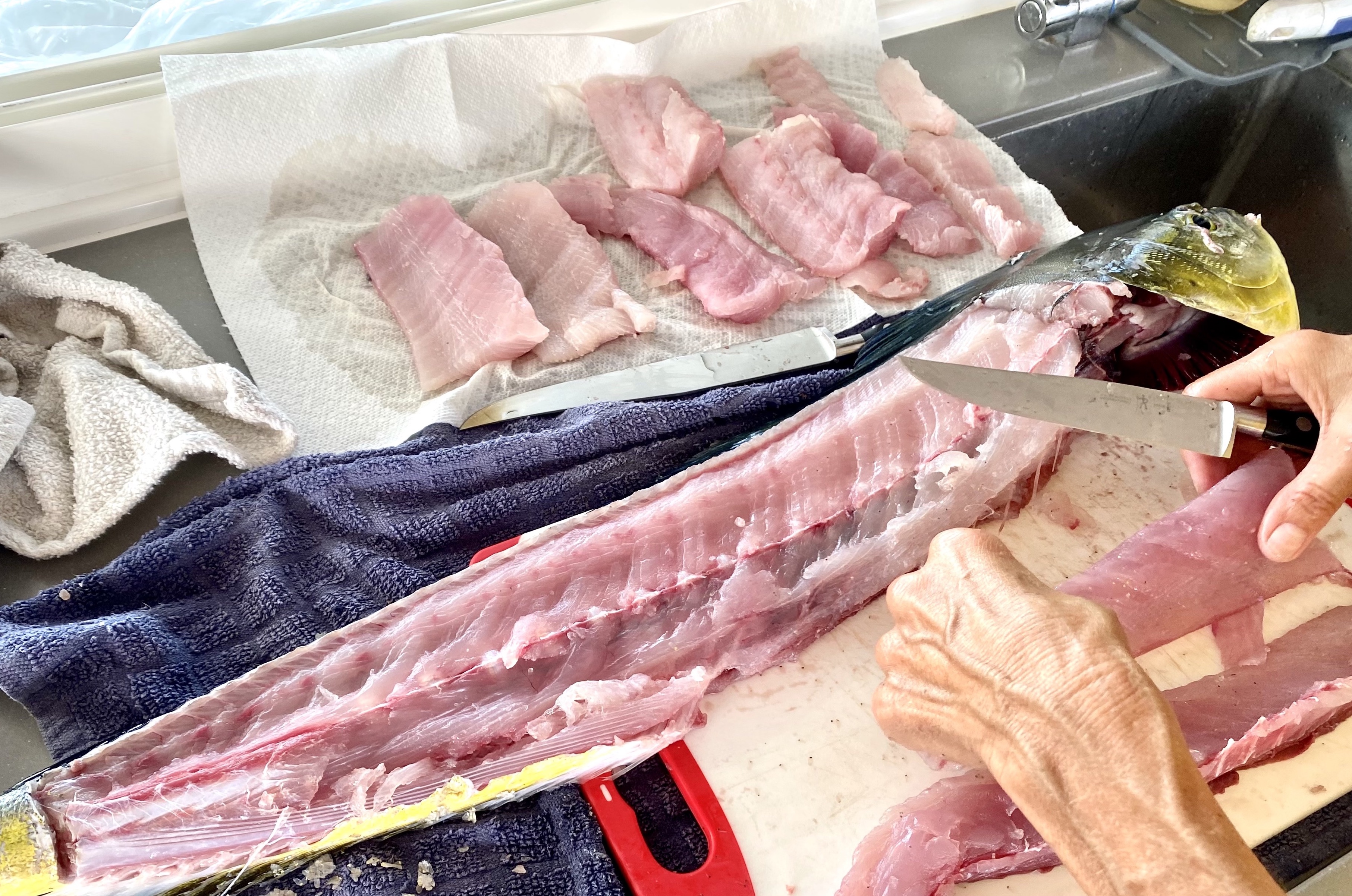
We made it to our anchorage at Royal Island, Eleuthera, about an hour before sunset. It was an amazing day. Unfortunately, we had to motor the whole day because of the extremely light winds, but the seas were stunning, the catch was exciting, and we were so thankful to have made it out of The Abacos safely before the bad weather system arrived.
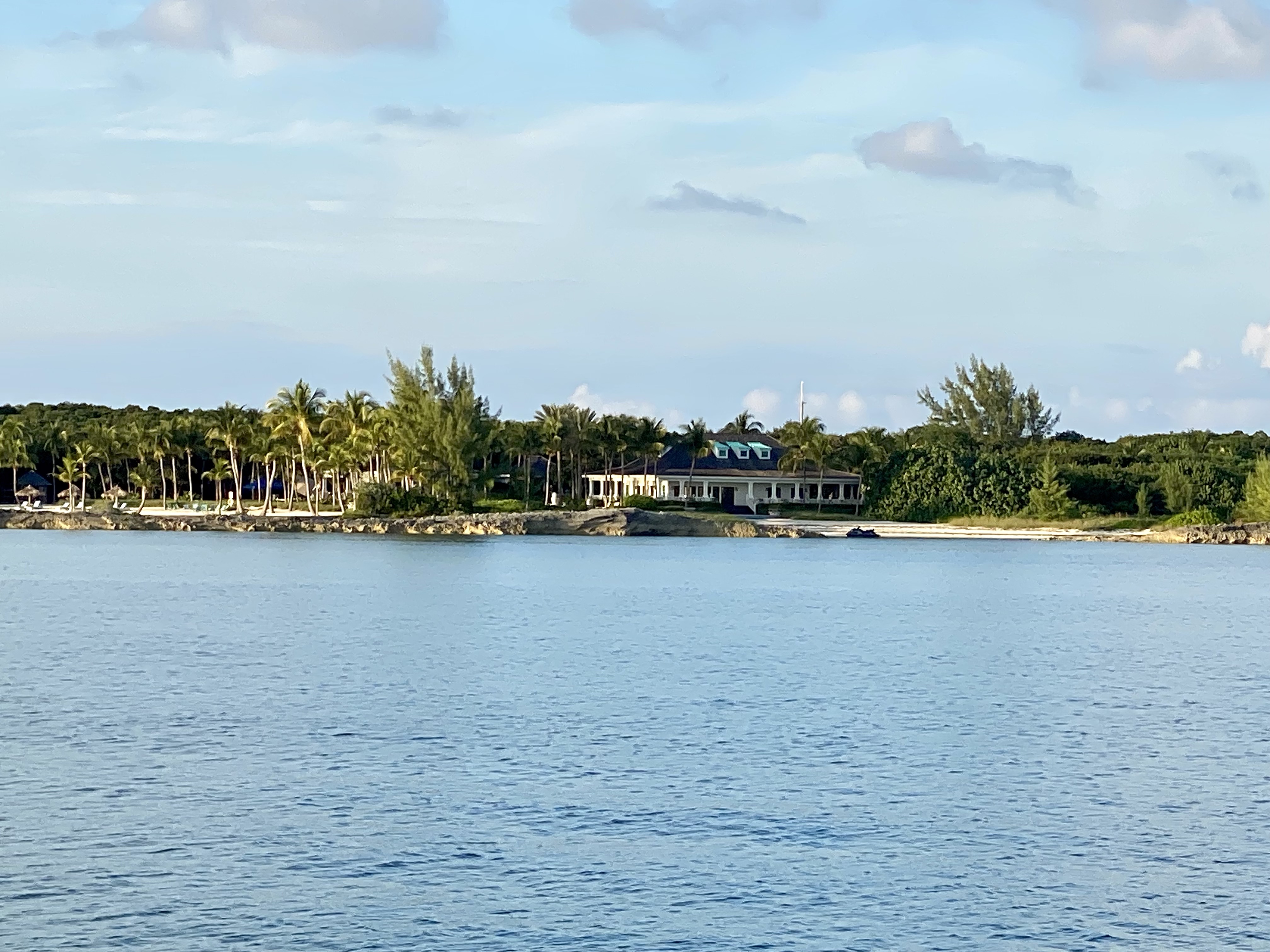
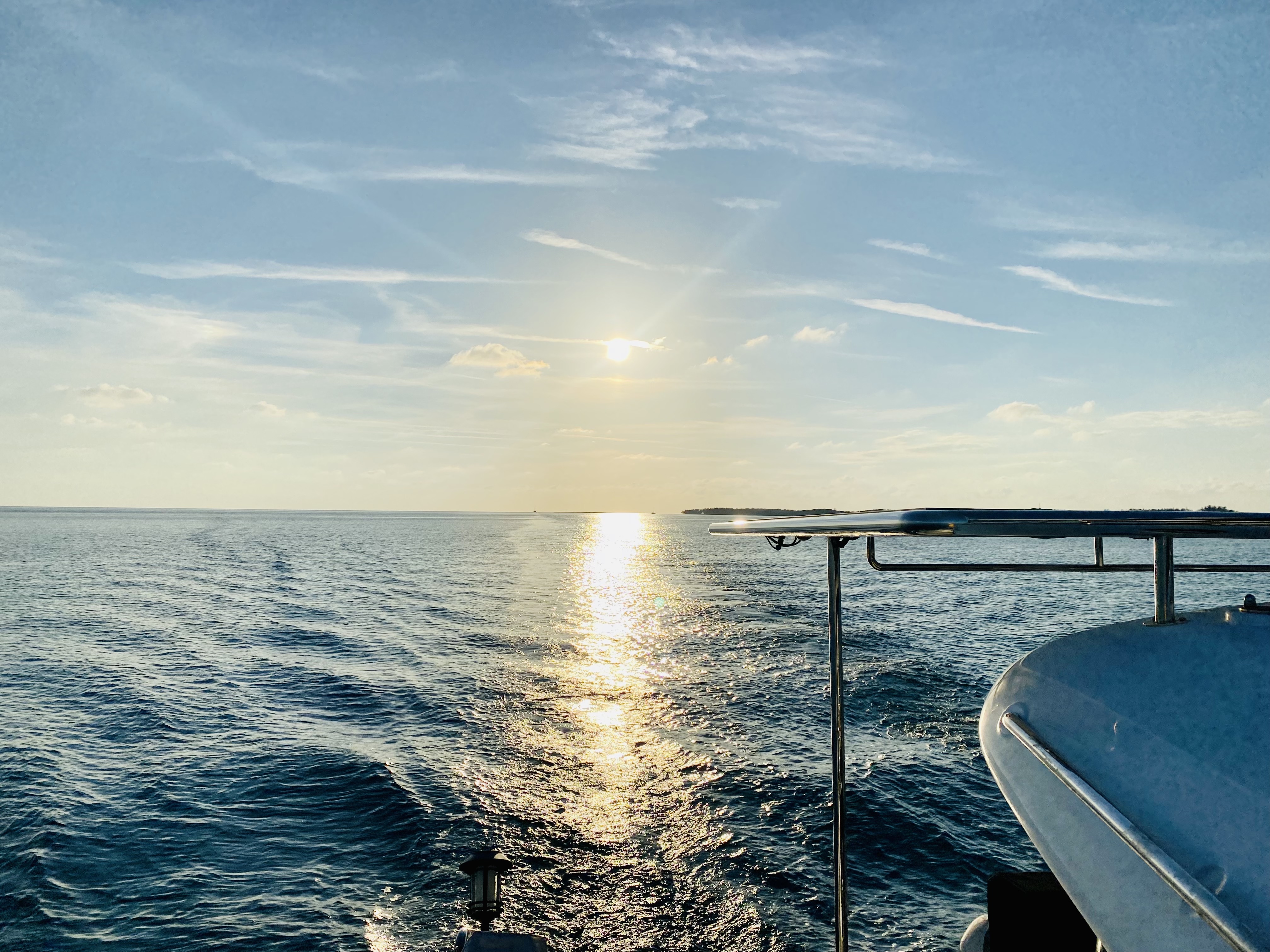
The anchorage at Royal Island was well-protected from all but a south wind, so we had a calm night with the northerly winds. This anchorage is huge. There was no way to go to shore as it was pretty much a barren location. I believe it was supposed to be a planned community that went awry and never came to fruition, but the protection was worth it!
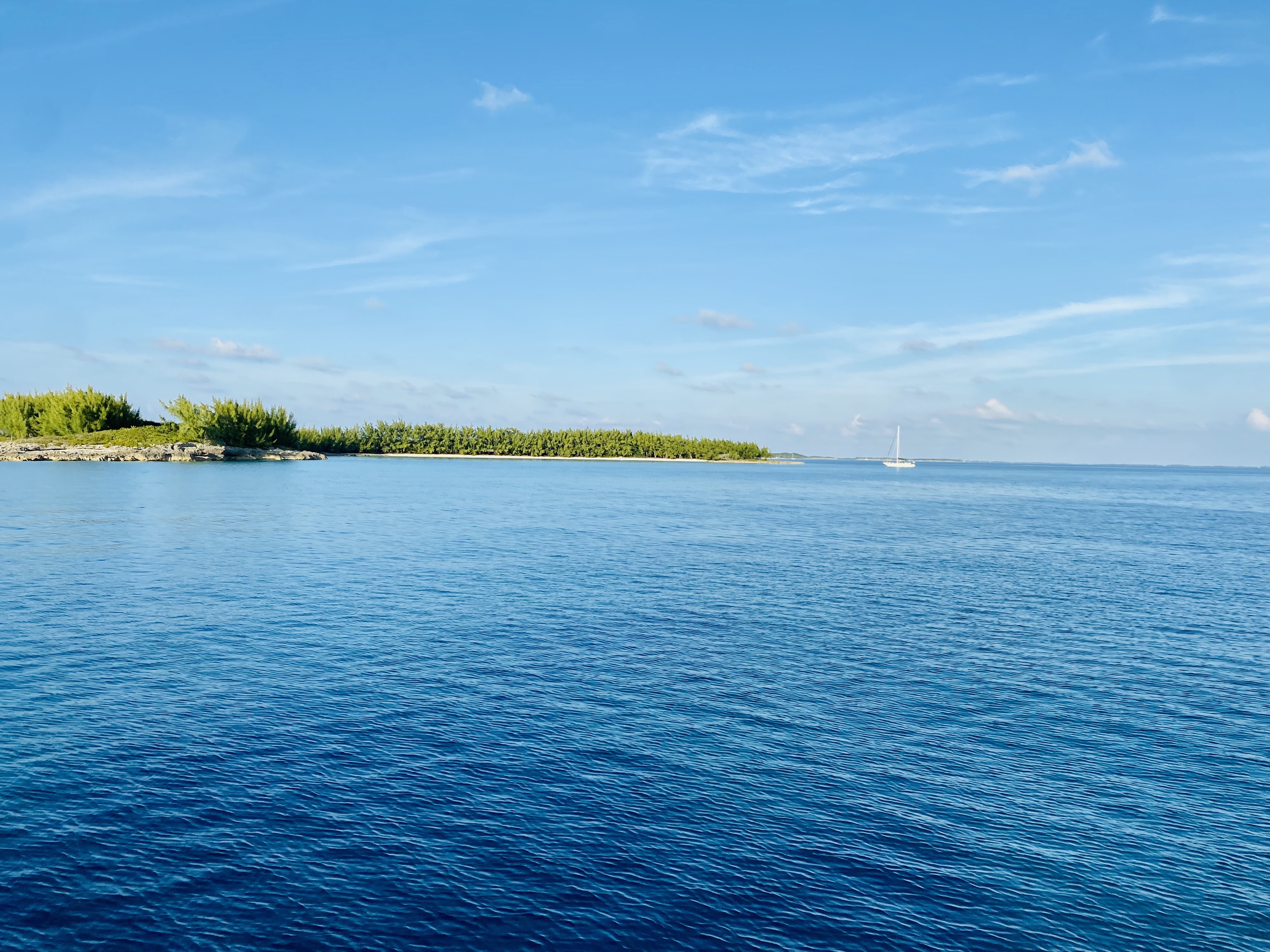
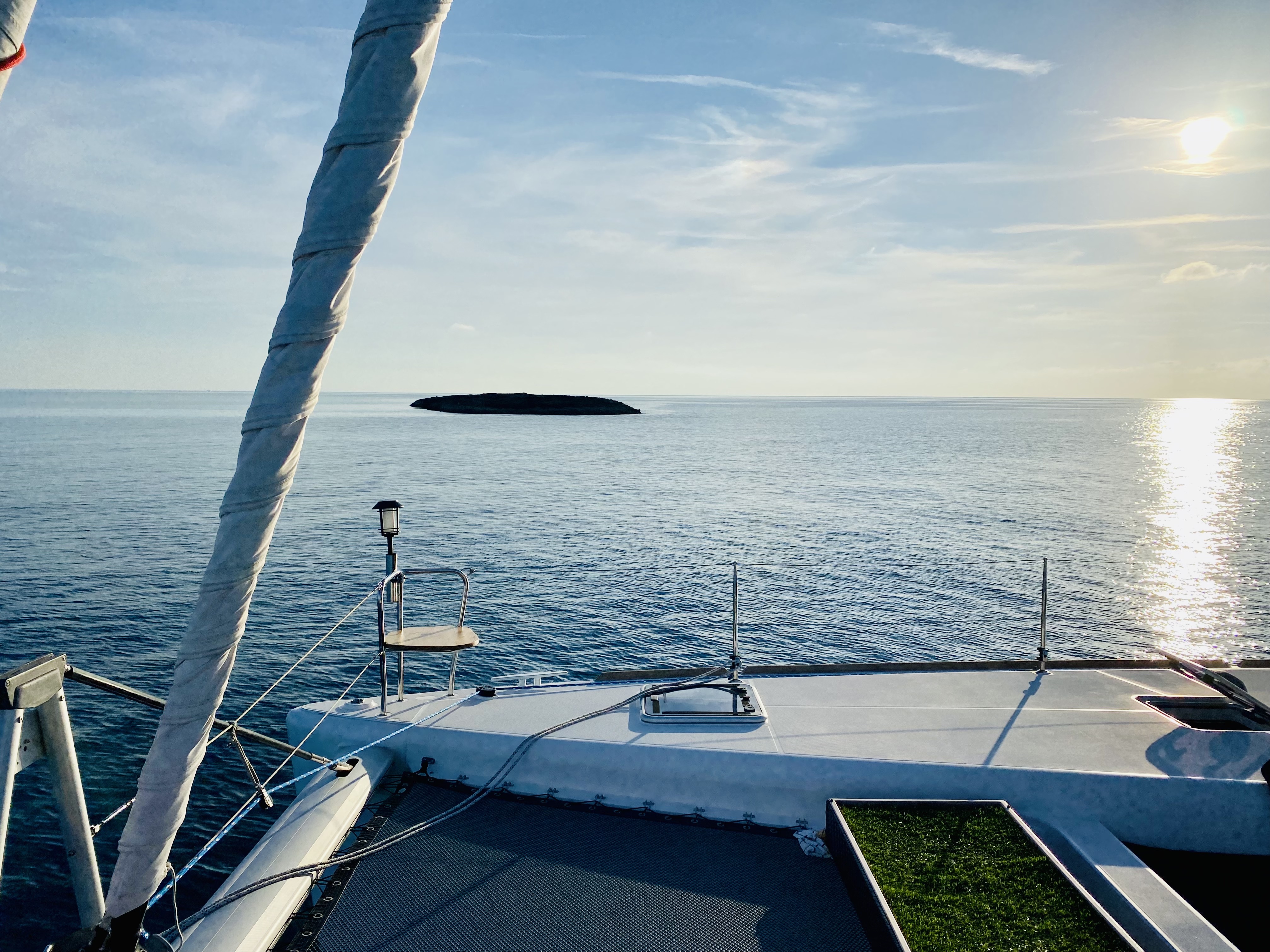
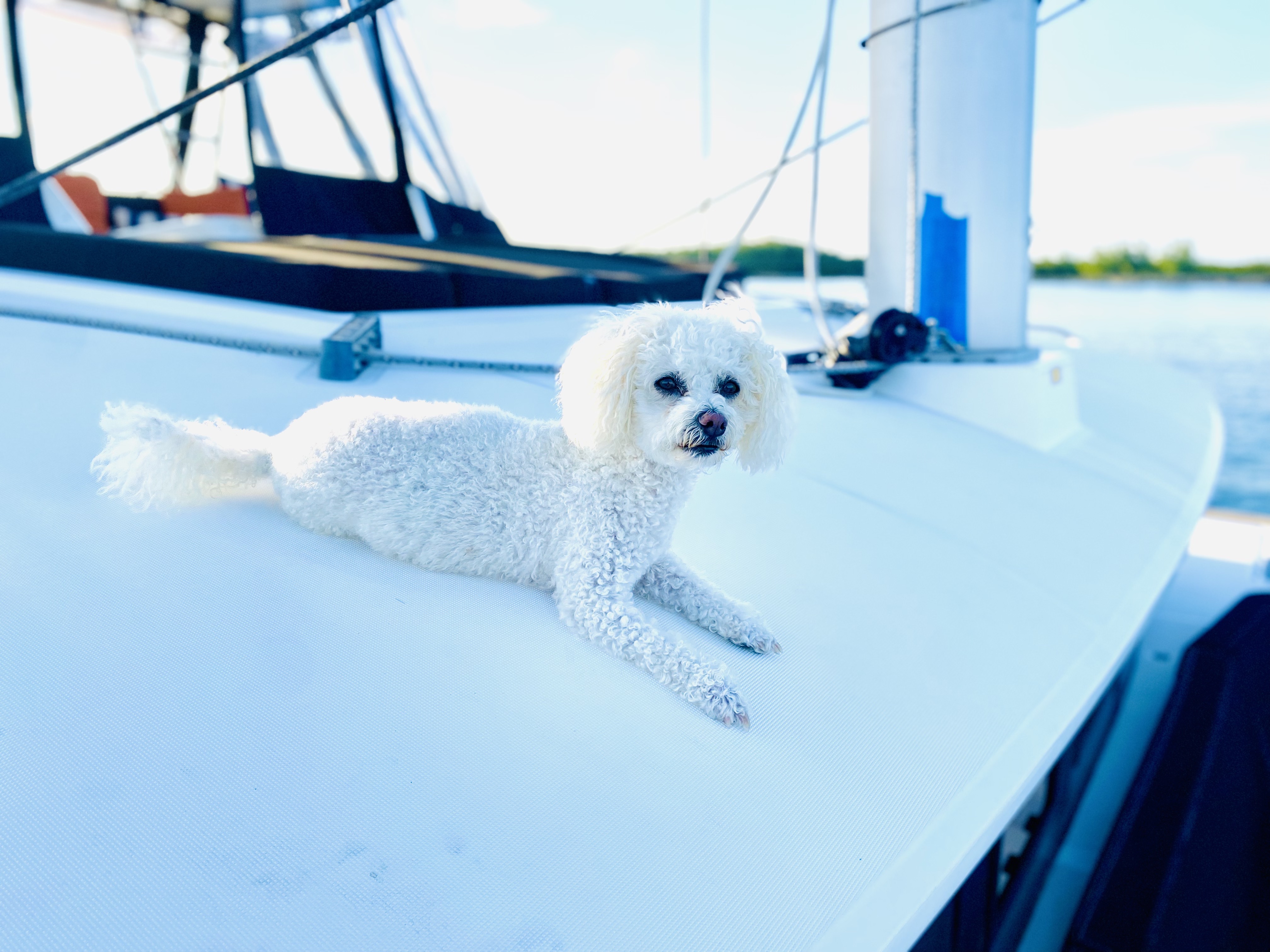
I sautéed a few of the mahi filets for dinner in olive oil and butter, after coating it with a special rub. I served it with Spanish rice, and steamed buttered carrots (which I had already prepared). The mahi was delicious. The seasonings were perfect, and the fish just melted in our mouths, just like an expensive sea bass would taste — absolutely wonderful.
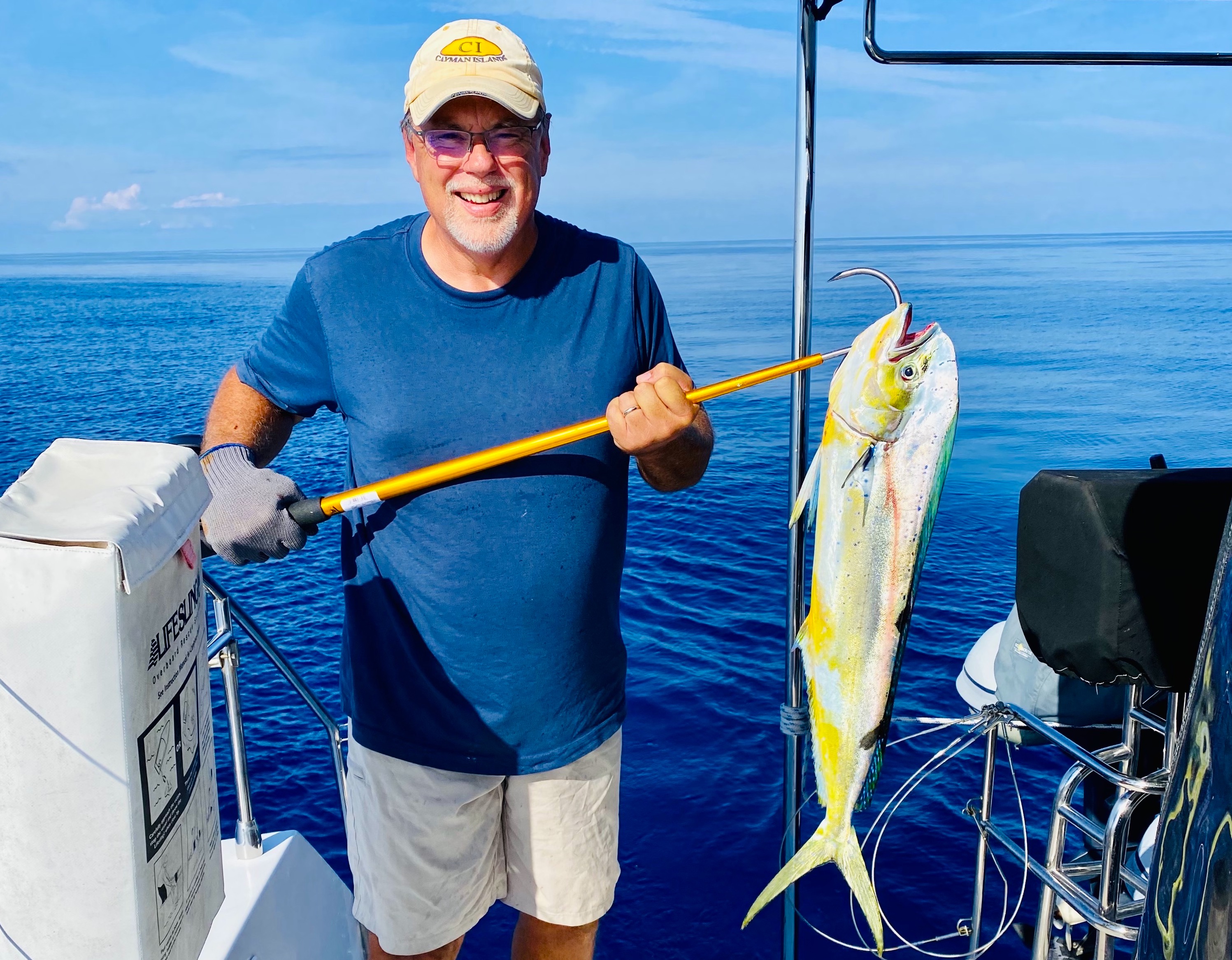
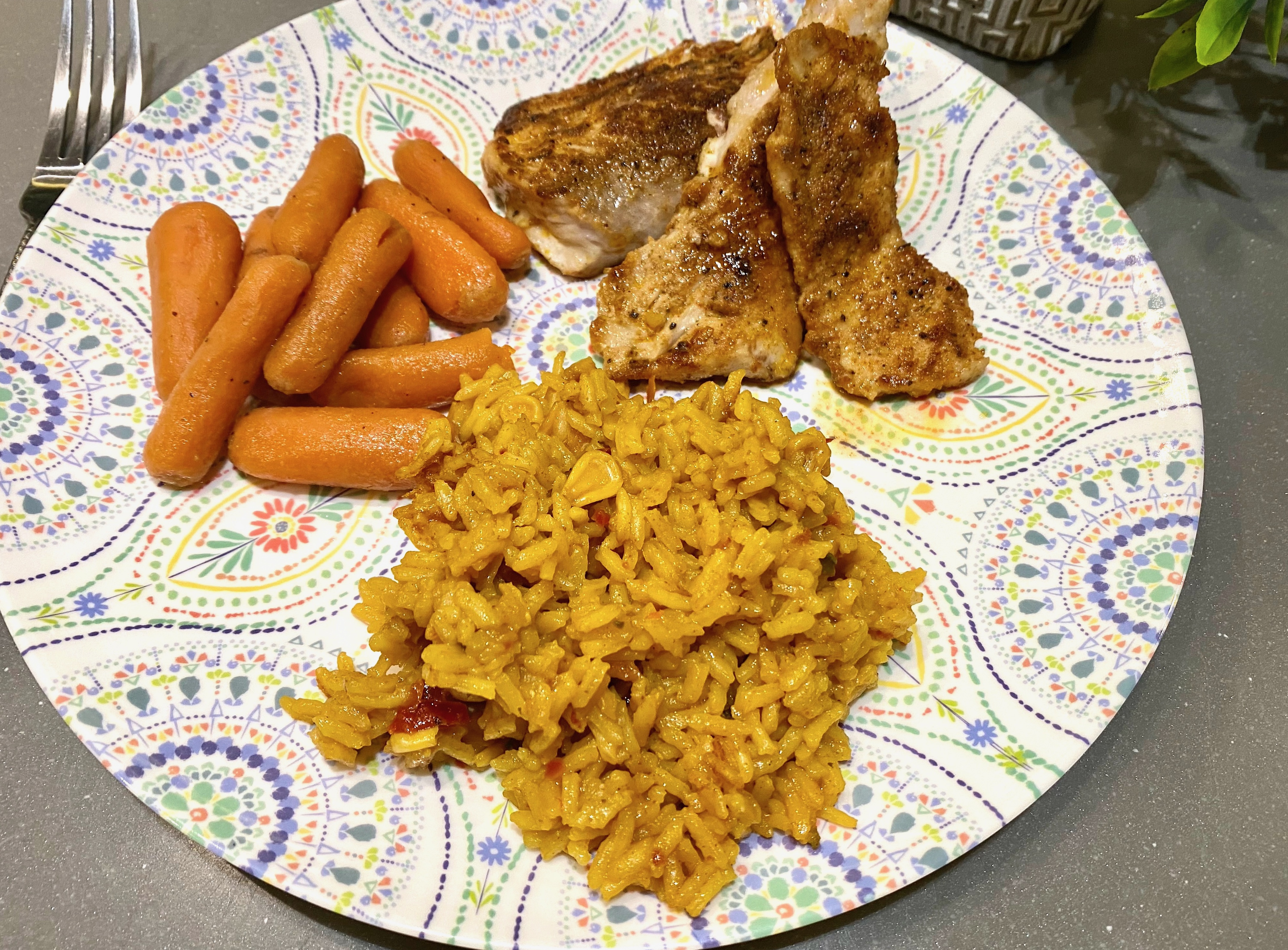
We thank “Him Who gives food to all flesh, for His mercy and loving-kindness endure forever” (Psalm 136:25). And we “give thanks to the God of heaven” for the safety he provided on our passage, “for His mercy and loving-kindness endure forever!” (Psalm 136:26).
